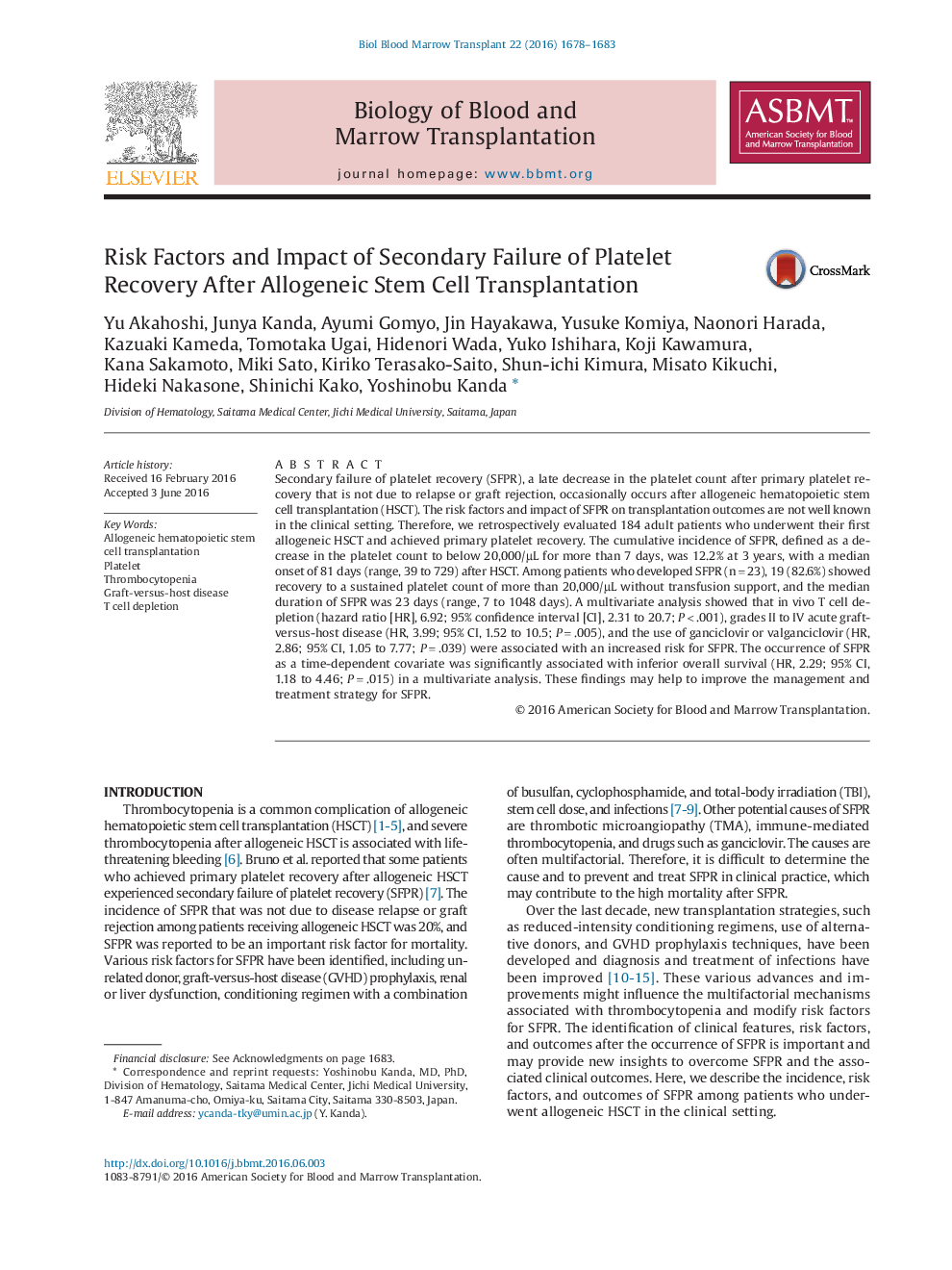| کد مقاله | کد نشریه | سال انتشار | مقاله انگلیسی | نسخه تمام متن |
|---|---|---|---|---|
| 2101288 | 1546250 | 2016 | 6 صفحه PDF | دانلود رایگان |
• The cumulative incidence of secondary failure of platelet recovery was 12.2% at 3 years
• T cell depletion, acute graft-versus-host disease, and the use of ganciclovir were risk factors for secondary failure of platelet recovery
• The development of secondary failure of platelet recovery was associated with inferior overall survival
Secondary failure of platelet recovery (SFPR), a late decrease in the platelet count after primary platelet recovery that is not due to relapse or graft rejection, occasionally occurs after allogeneic hematopoietic stem cell transplantation (HSCT). The risk factors and impact of SFPR on transplantation outcomes are not well known in the clinical setting. Therefore, we retrospectively evaluated 184 adult patients who underwent their first allogeneic HSCT and achieved primary platelet recovery. The cumulative incidence of SFPR, defined as a decrease in the platelet count to below 20,000/µL for more than 7 days, was 12.2% at 3 years, with a median onset of 81 days (range, 39 to 729) after HSCT. Among patients who developed SFPR (n = 23), 19 (82.6%) showed recovery to a sustained platelet count of more than 20,000/µL without transfusion support, and the median duration of SFPR was 23 days (range, 7 to 1048 days). A multivariate analysis showed that in vivo T cell depletion (hazard ratio [HR], 6.92; 95% confidence interval [CI], 2.31 to 20.7; P < .001), grades II to IV acute graft-versus-host disease (HR, 3.99; 95% CI, 1.52 to 10.5; P = .005), and the use of ganciclovir or valganciclovir (HR, 2.86; 95% CI, 1.05 to 7.77; P = .039) were associated with an increased risk for SFPR. The occurrence of SFPR as a time-dependent covariate was significantly associated with inferior overall survival (HR, 2.29; 95% CI, 1.18 to 4.46; P = .015) in a multivariate analysis. These findings may help to improve the management and treatment strategy for SFPR.
Journal: - Volume 22, Issue 9, September 2016, Pages 1678–1683
